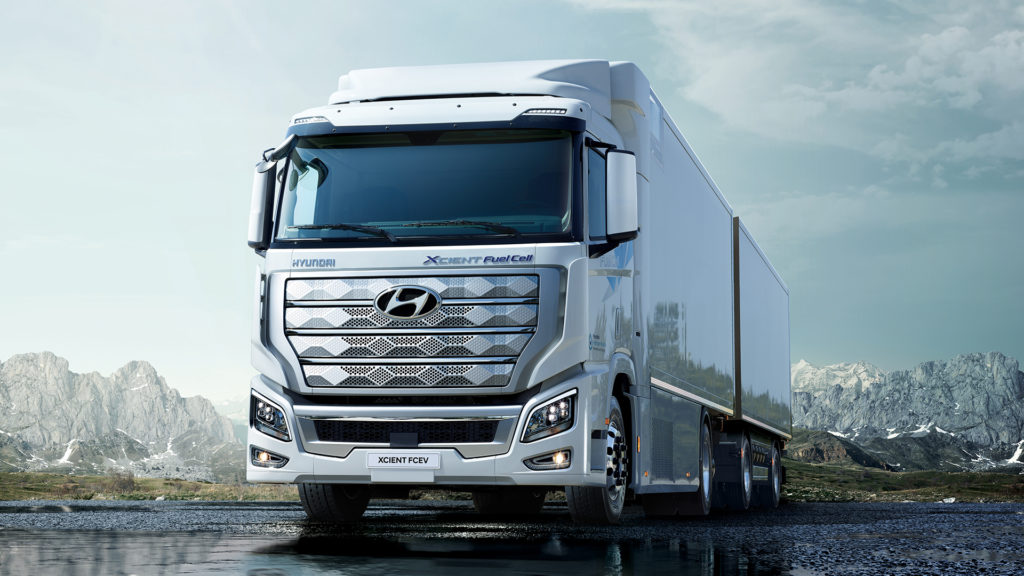Hyundai Motor is shipping 10 units of the XCIENT Fuel Cell, the world’s first mass-produced fuel cell heavy-duty truck, to Switzerland. Handover to commercial fleet customers will start in September according to Hyundai, and the company aims to roll out 50 trucks this year.
Hyundai aims to have 1,600 working units by 2025, as it works toward reducing carbon emissions. The XCIENT is powered by a 190kW hydrogen fuel cell system, which is split into two 95-kW fuel cell stacks. The fuel system is then powered by seven large hydrogen tanks, which store 32.09 kg of hydrogen combined.
According to Hyundai, the XCIENT can reach 400km on a single refuelling (with a 34-ton truck plus trailer combination), in other words, from London to Birmingham and back. Refuelling should take approximately 8-20 minutes. Taking its reasonably long range and short refuelling times into consideration, fuel cell technology is well-suited for commercial and logistical shipping.
Hyundai opted for Switzerland as a location to begin its venture into environmentally friendly truck sales because of the lack of road tax for zero-emission trucks. According to Hyundai, who are collaborating with Swiss company H2 Energy, the absence of road tax equalises the hauling costs per kilometre of the fuel cell truck compared to a regular diesel truck. Alongside the XCIENT truck, Hyundai is also developing a long-distance tractor that would offer a greener option for customers.
Switzerland has one of the highest shares of hydropower globally, and it will be interesting to see if more countries adopt green hydro energy based on Hyundai’s possible success. Talk of other green heavy-duty trucks has been heard in the past, for example the mysterious Neuron truck. According to Hyundai however, they are making history with the deployment of these vehicles.
Hyundai continues to show its commitment to hydrogen energy. The company is not alone in its hydrogen-powered vehicles as Toyota is also in the market with the Mirai car. The South Korean company hopes to build up a steady hydrogen infrastructure in Switzerland that may spread to other European countries with the goal of improved air quality and lowering emissions.
